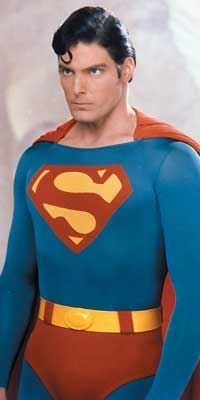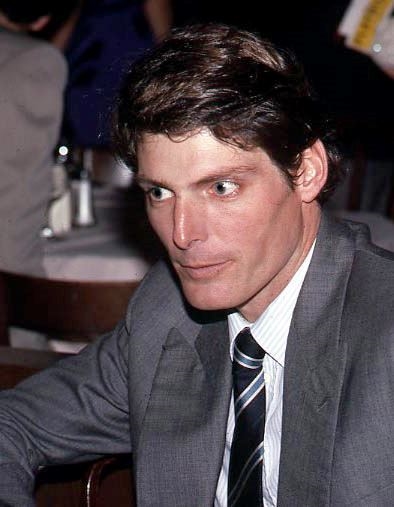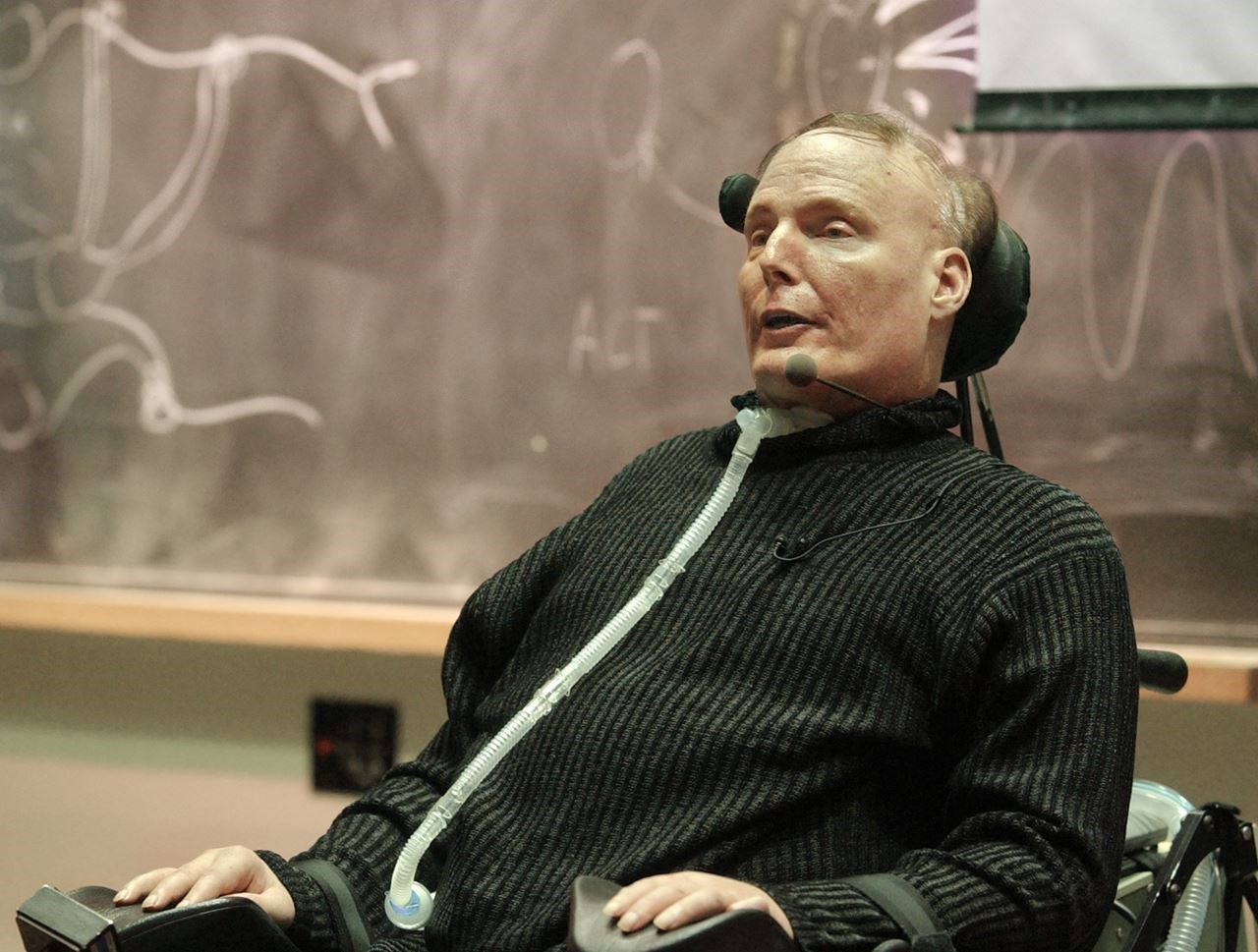 Christopher Reeve as SupermanJoshua Dickens [Public domain] via FlickrSuperman is the most recognized superhero in the world. He is the face of DC Comics and the face of comic book characters. He is widely considered as the first "real" superhero. Characters such as the Phantom came before him, however they are not nearly as popular. But why Superman? What makes the Man of Tomorrow such a great hero? It is not his powers; it is not his strength or speed either. So what is it? He most certainly is someone the average man looks up to, even if he is fictional. Maybe it was his movies that helped his boost in popularity. In 1980, the first Superman movie came to the big screen. Christopher Reeve was the actor who played Last Son of Krypton in the critically appraised movie. To this day, he is still viewed by many as the most iconic version of Superman that the world has ever seen. However, Reeve only played the Man of Steel in the movies; he did not have his amazing powers. In 1995, he was involved a horseback riding accident and was paralyzed from the neck down for the rest of his life. Reeve could not move anything below his neck but his fingers and toes. This event should have altered his life in a negative way, but ultimately it did not. Losing the ability to walk is something that should have been catastrophic. But not being able to walk put Reeve on a hopeful journey. The former Superman actor involved himself in many foundations that supported the disabled. He stood up for the rights of many. Reeve became a lot like the Man of Steel, sharing many similar goals, ideas, and personalities traits. However nobody could be the same exact person as another. Christopher Reeve and Superman had one major difference: Reeve is not fictional, even if his story might sound like it.
Christopher Reeve as SupermanJoshua Dickens [Public domain] via FlickrSuperman is the most recognized superhero in the world. He is the face of DC Comics and the face of comic book characters. He is widely considered as the first "real" superhero. Characters such as the Phantom came before him, however they are not nearly as popular. But why Superman? What makes the Man of Tomorrow such a great hero? It is not his powers; it is not his strength or speed either. So what is it? He most certainly is someone the average man looks up to, even if he is fictional. Maybe it was his movies that helped his boost in popularity. In 1980, the first Superman movie came to the big screen. Christopher Reeve was the actor who played Last Son of Krypton in the critically appraised movie. To this day, he is still viewed by many as the most iconic version of Superman that the world has ever seen. However, Reeve only played the Man of Steel in the movies; he did not have his amazing powers. In 1995, he was involved a horseback riding accident and was paralyzed from the neck down for the rest of his life. Reeve could not move anything below his neck but his fingers and toes. This event should have altered his life in a negative way, but ultimately it did not. Losing the ability to walk is something that should have been catastrophic. But not being able to walk put Reeve on a hopeful journey. The former Superman actor involved himself in many foundations that supported the disabled. He stood up for the rights of many. Reeve became a lot like the Man of Steel, sharing many similar goals, ideas, and personalities traits. However nobody could be the same exact person as another. Christopher Reeve and Superman had one major difference: Reeve is not fictional, even if his story might sound like it.
 Christopher ReeveJBFrankel [CC BY-SA 3.0] via WikimediaSuperman advocates for those who cannot defend themselves or those who society has turned a blind eye to. He is selfless even with all his power. After rehabilitation, Christopher Reeve was determined to find a cure for every spinal cord injury. He devoted much of his wealth and time to the cause. He advocated for those did not have the ability to advocate for themselves. Reeve wanted to find a cure so those who suffered from disabilities could prosper beside him. This is what Superman does; he helps and cares for people. He wants people to be able to live the best lives possible and aids them in doing so. However, Reeve did something that Superman could not. Reeve was only human. He had the ability to connect with people on many levels that Superman could never achieve. Reeve had many of the same problems that the people around him encountered. He did not have the ability to leap tall buildings in a single bound or outrun a speeding bullet. He dealt with paralysis, breathing issues, and diseases that normal human beings suffer from. Even with all his problems, Reeve showed everyone that they could be heroes, no matter who they were. They did not need superpowers. All they needed was the courage to put on the cape. Although Reeve passed away in late 2004, his legacy and memory lives on through the foundations, charitable organizations, and movies he left behind.
Christopher ReeveJBFrankel [CC BY-SA 3.0] via WikimediaSuperman advocates for those who cannot defend themselves or those who society has turned a blind eye to. He is selfless even with all his power. After rehabilitation, Christopher Reeve was determined to find a cure for every spinal cord injury. He devoted much of his wealth and time to the cause. He advocated for those did not have the ability to advocate for themselves. Reeve wanted to find a cure so those who suffered from disabilities could prosper beside him. This is what Superman does; he helps and cares for people. He wants people to be able to live the best lives possible and aids them in doing so. However, Reeve did something that Superman could not. Reeve was only human. He had the ability to connect with people on many levels that Superman could never achieve. Reeve had many of the same problems that the people around him encountered. He did not have the ability to leap tall buildings in a single bound or outrun a speeding bullet. He dealt with paralysis, breathing issues, and diseases that normal human beings suffer from. Even with all his problems, Reeve showed everyone that they could be heroes, no matter who they were. They did not need superpowers. All they needed was the courage to put on the cape. Although Reeve passed away in late 2004, his legacy and memory lives on through the foundations, charitable organizations, and movies he left behind.
Christopher Reeve was always a Humans Rights activist, even before his accident. He did many things to benefit others that may not have benefited himself. "In the fall of 1987 he traveled to Chile and risked his life in support of seventy-seven Chilean actors threatened with execution by the Pinochet regime" ("Christopher Reeve" Scribner). Reeve was willing to put his well being on the line to support those being treated unfairly. This is what a hero does. They would sacrifice something so someone else could have a chance to live a better life. They do it as an act of selflessness, not to boost their popularity or ego. Reeve also spoke up for the rights of children, the rights of the environment, and the rights of the disabled. He even took the role of national spokesman of the disabled. "Reeve was an activist on behalf of children's issues, human rights, the environment, and the National Endowment for the Arts. He has since assumed the role of national spokesman for the disabled--especially those people who, like him, have suffered spinal-cord injuries" ("Christopher Reeve" Contemporary). Reeve helped many people with disabilities have their voices heard. He lead strong and knew when and where to lend a helping hand. He was not just an advocate for people with disabilities; he related to them. Even though Reeve was rich and famous, he saw himself amongst them because of his spinal cord injury. He was an equal but at the same time, he was someone to look up to.
Christopher Reeve was an activist but this was not the only way he helped people. Reeve somehow still had enough time to be an optimistic researcher. "He and his wife, Dana, founded the Christopher Reeve Paralysis Foundation (CRPF), the CRPF Research Consortium, and the Christopher and Dana Reeve Paralysis Resource Center, devoted to education, advocacy, and the advancement of research aimed at curing spinal cord injuries" ("He Never Gave Up"). Reeve didn't have to do any of this. He could have only cared for himself. To many, all that matters is their life but no one else's. Instead, Reeve cared about the lives of others. He wanted to lead the paralyzed into walking again or for the first time. Reeve's goal was to have them accomplish wonders that they never dreamed of. Reeve turned into such a strong leader that he became the national spokesman for the disabled. "...and in 1999 became chairman of the board. He spoke on national health issues at the 1996 Democratic National Convention and was a proponent of stem cell research and therapeutic cloning" ("Christopher Reeve" Scribner). Christopher Reeve advocated enough that huge organizations and political parties started to listen to him. Reeve practiced his First Amendment Rights and created a new conversation about stem cell research. He testified and fought for something he believed in. Without Reeve, the world's stem cell research may not be as advanced as it is today. People with paralysis may not be represented as well as they are today either. Reeve changed the worlds of many people with disabilities in a positive way. He changed their worlds enough that he was called a hero.
 Christopher ReeveMike Lin [Public domain] via Wikimedia Christopher Reeve was someone to look up to because of how hopeful and perseverant he was. Reeve was a beacon of hope and he used his popularity and celebrity status to improve the lives of others. "Reeve used his power to develop and fund the research of spinal cord injuries. He was able to help create and advance technology to help spinal cord injuries" ("He Never Gave Up"). Christopher Reeve was not just an actor or some big movie star. He was something more because of his characteristics that incited hope and his optimistic personality. He is an inspiration and a hero because of his activism and research. Many would also call him inspirational because of he what accomplished with his disabilities. "Reeve continued to work after ongoing rehabilitation. He acted again in films including a television production of Rear Window (1998) and directed two television films with health themes, In the Gloaming (1997) and The Brooke Ellison Story (2004). His autobiography Still Me appeared in 1998" ("Christopher Reeve" Biography.com). Reeve reached for higher achievements after his accident. His goals that he set in place and accomplished were what made him so inspirational. Reeve demonstrated the idea that anyone can succeed in anything no matter what state that person is in. Whether the goal be acting in movies, advocating for those who could not do so themselves, or teaching the world about a cause that he was passionate about, Reeve showed the world it could be done. These goals would take a tremendous amount of hard work of course, but they are not impossible to reach.
Christopher ReeveMike Lin [Public domain] via Wikimedia Christopher Reeve was someone to look up to because of how hopeful and perseverant he was. Reeve was a beacon of hope and he used his popularity and celebrity status to improve the lives of others. "Reeve used his power to develop and fund the research of spinal cord injuries. He was able to help create and advance technology to help spinal cord injuries" ("He Never Gave Up"). Christopher Reeve was not just an actor or some big movie star. He was something more because of his characteristics that incited hope and his optimistic personality. He is an inspiration and a hero because of his activism and research. Many would also call him inspirational because of he what accomplished with his disabilities. "Reeve continued to work after ongoing rehabilitation. He acted again in films including a television production of Rear Window (1998) and directed two television films with health themes, In the Gloaming (1997) and The Brooke Ellison Story (2004). His autobiography Still Me appeared in 1998" ("Christopher Reeve" Biography.com). Reeve reached for higher achievements after his accident. His goals that he set in place and accomplished were what made him so inspirational. Reeve demonstrated the idea that anyone can succeed in anything no matter what state that person is in. Whether the goal be acting in movies, advocating for those who could not do so themselves, or teaching the world about a cause that he was passionate about, Reeve showed the world it could be done. These goals would take a tremendous amount of hard work of course, but they are not impossible to reach.
So what makes Superman so super? I know what does. It is how he stands for hope and how he stands up for the smaller person. He does not have to these things but he still decides to anyway. He reminds everyone that there will always be a tomorrow, no matter how bad the day is. Even if he is not human, he is someone we should all aspire to be. Christopher Reeve knew this and was the real life example of the hero he played on screen. He showed everyone the good in humanity. He knew how to speak up for people who could not do so for themselves. Reeve, like Superman, was somebody we all should all look up to. To me, he is an example of what every man, woman and child should be like on this earth if we wanted to achieve a perfect world. Reeve created many foundations advocating for the disabled. He also fought for the rights of anyone who was in need: children, the paralyzed, and people being treated unfairly by their government. Even though he could not walk, move his arms, or move his neck, Reeve was a still hero. He overcame these challenges time and time again to show how strong he truly was. He did not have any superpowers but he was able to make a huge difference in the world through his charities, foundations, and movies. Christopher Reeve wasn't just an activist, researcher, or inspirer. Christopher Reeve was the Man of Steel, Superman.
Page created on 2/9/2017 12:00:00 AM
Last edited 8/5/2024 4:51:36 PM
"Christopher Reeve." Biography.com. A&E Networks Television, 29 Dec. 2014. Web. 24 Jan. 2017.
"Christopher Reeve." Contemporary Heroes and Heroines, vol. 3, Gale, 1998. Biography in Context
"Christopher Reeve." The Scribner Encyclopedia of American Lives, Charles Scribner's Sons, 2007.
"He Never Gave Up." Medicine, Health, and Bioethics: Essential Primary Sources, edited by K. Lee
